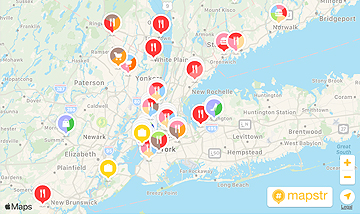Israel/Gaza – Syria – Mali – European Union
Paris, November 22, 2012
(…)
ISRAEL/GAZA
Q. – How can the living conditions of Gaza’s inhabitants be improved and Israelis’ security guaranteed at the same time?
THE MINISTER – That’s the whole problem, and it was the stumbling-block for several days. François Hollande asked me to go to the region on Sunday and we discussed the problem. On the one hand there was a demand from the Israelis – which is perfectly legitimate – consisting in saying that the firing of rockets into Israel had to cease, and to this end their supply must be monitored. On the other side, the Gazans want the blockade to be eased. And so the ceasefire was decided, it’s being respected, I hope it will continue, but this must all be monitored.
Q. – And there must be further progress, otherwise it will start again.
THE MINISTER – Further progress means the search for peace…
Q. – What does that mean?
THE MINISTER – A search that involves negotiation, Israel’s security and recognition of the two states.
Q. – Are you asking Israel to lift the blockade imposed on Gaza?
THE MINISTER – In the long term it’s clear – I don’t know if you’ve been to Gaza – but the situation is absolutely unbearable. It’s a tiny territory with a very large number of inhabitants per square kilometre, with an extremely large number of checkpoints and terrible living conditions, so a solution must of course be found.
Q. – Are you asking for the blockade to be lifted?
THE MINISTER – We’ve been asking for a long time for an easing of the blockade, which has also been condemned, and at the same time we’re asking for Israel’s security to be guaranteed.
Q. – But how can it be done? Lifting the blockade…
THE MINISTER – Negotiation.
Q. – Negotiation?
THE MINISTER – There’s no other solution; there has to be negotiation. On that point…
Q. – So you’re asking Israel for a gesture – to partially lift the blockade – and you’re asking Hamas and the Palestinians to…
THE MINISTER – For the moment I’m asking…
Q. – France, I’m talking about France: you.
THE MINISTER – For the ceasefire to be respected.
Q. – Yes.
THE MINISTER – Then of course there must be discussions – which will be lengthy – to resolve the problems we’ve just mentioned.
IRAN/HAMAS
Q. – Is Iran providing military assistance to Hamas?
THE MINISTER – According to reports, there are several types of provision, of supply. As regards the long-range missiles – with a range of 75 kilometres and a weight of 950 kilos – that are for the first time threatening Israel, including the southern cities, they’re Iranian-built missiles, yes.
Q. – You’ve accused Tehran – I’m looking at the dispatch which arrived a few minutes ago – of bearing heavy responsibility for the conflict over the Gaza Strip, for having supplied long-range weapons to Hamas…
THE MINISTER – Yes…
Q. – Yes, yes, and Iran is angry about your remarks.
THE MINISTER – Listen, I’m not going to get into a war of words; it serves no purpose. There’s simply a fact. Iran is directly implicated in many serious crises at the moment, and she claims responsibility for it. We know Iran’s helping Bashar al-Assad in Syria. We saw Iran send a drone over Israel. As you know, we’re in negotiations to ensure Iran doesn’t obtain a nuclear weapon. There you are: those are facts. (…)
SYRIA/TURKEY/NATO ARTICLE 4
Q. – (…) Is it true that NATO is going to deploy missiles in Turkey?
THE MINISTER – There’s been a request from our Turkish colleagues for Patriot missiles to be deployed at the Turkish border. The request was made on the basis of Article 4 of the NATO treaty. We’re discussing this at the moment. Two countries have these Patriots: the Netherlands and Germany. The request was made in response to missile launches by the Syrians. We stand alongside those who would like Article 4 to be applied.
Q. – So you support this request?
THE MINISTER – It’s being studied at the moment, but there’s no reason to refuse it.
Q. – There’s no reason to refuse it.
THE MINISTER – On purely defensive grounds.
SYRIAN NATIONAL COALITION
Q. – The jihadist fighters in Syria don’t want to be part of the national coalition you’ve formally recognized.
THE MINISTER – Fine.
Q. – You say “fine”…
THE MINISTER – Of course.
Q. – But they’re sheltering in their stronghold around Aleppo.
THE MINISTER – Fine. The new factor which arose last week, which is very important, is that the whole of the – I was going to say “democratic” – opposition grouped together in the Syrian National Coalition. We need the opposition to group together because if we want an alternative to Bashar al-Assad, we have to be able to say, the Syrians have to be able to say that this is what the alternative will be. So, respected and respectable people have come together in this coalition.
The Gulf states, France, Britain and Italy have recognized it, so things are making progress. What’s this coalition going to do? It’s going to set up a provisional government in the next few days – this is what it told us – and it’s also going to distribute humanitarian aid to the Syrian people who are in a very difficult situation. Little by little it’s going to gain in importance in preparing the Syria of tomorrow. It’s absolutely true that one or two jihadist groups said they didn’t identify with the coalition. But the coalition told us – and this is extremely important – that it wanted tomorrow’s Syria to respect all communities, i.e. the Alawites, Russians, Christians etc. Whereas the jihadists themselves want something else.
MALI/FRENCH HOSTAGE
Q. – Let’s talk about the Frenchman who was kidnapped on the border between Mali and Mauritania I think…
THE MINISTER – Yes, on the Malian side, i.e. in south-west Mali in an area which until now didn’t appear to be controlled by the terrorists. Well, obviously…
Q. – Do you have any news?
THE MINISTER – Yes, we’ve had information from the Malian authorities.
Q. – Is he alive?
THE MINISTER – As far as we can tell, yes. Responsibility has been claimed but we still haven’t been able to verify it. He’s thought to have been kidnapped by a group of jihadists from the north and now we’ve got to be wary because we don’t quite know the circumstances in which this happened. (…) Firstly, I repeat: people mustn’t go to that area because it’s extremely unwise to do so, and I say this again to everyone. Secondly, it means, once again, that we must absolutely fight against terrorism, and this is what Africans are starting to do both in Mali and in the neighbouring countries.
MALI/TERRORISM/AFRICAN MILITARY INTERVENTION
Q. – So what’s the current situation with this possible African military intervention?
THE MINISTER – We’re not yet at that stage. Now…
Q. – What stage are we at?
THE MINISTER – The problem with Mali – unfortunately it’s just been illustrated by this additional kidnapping, which means we now have seven hostages – is that a form of terrorism is developing there, often narco-terrorism, which threatens not only Mali but also the whole of Africa. We’re talking about the border with Mauritania, and not far from Senegal. So you can see the risk in all those countries. And the international community has therefore realized action must be taken on three fronts.
Firstly, a political front. Mali’s authorities in the south must talk to those groups in the north which reject terrorism. That’s currently being done, because a political foundation is needed. Secondly, a security foundation is needed. The Malian army must be rebuilt, and around it there must be African forces that agree to intervene if need be. This is being done, but it’ll take time because there’s no longer a Malian army. And thirdly, we must help with development and the humanitarian side, and all this is being set in motion at international level…
Q. – And when? Do you have any dates?
THE MINISTER – Yes, the UN will be giving its green light to this package at the beginning of December.
Q. – The beginning of December. But a possible intervention…
THE MINISTER – We’re not at that stage.
Q. – In the coming weeks.
THE MINISTER – No, we’re not at that stage. The Malian forces must be rebuilt first, clearly, because there can’t be an intervention without Malian forces, and the neighbouring countries must provide contingents. But I stress, nevertheless, that it’s up to the Africans first of all to carry out the necessary actions; the international community…
Q. – Our support will be only logistical…
THE MINISTER – It’s in a supportive capacity. But it’s a matter for the Africans first of all. But on this subject – as on the Syria issue and the events in Gaza and Israel – France is tyring to facilitate peace. Our line is that France is a force for peace. (…)./.














